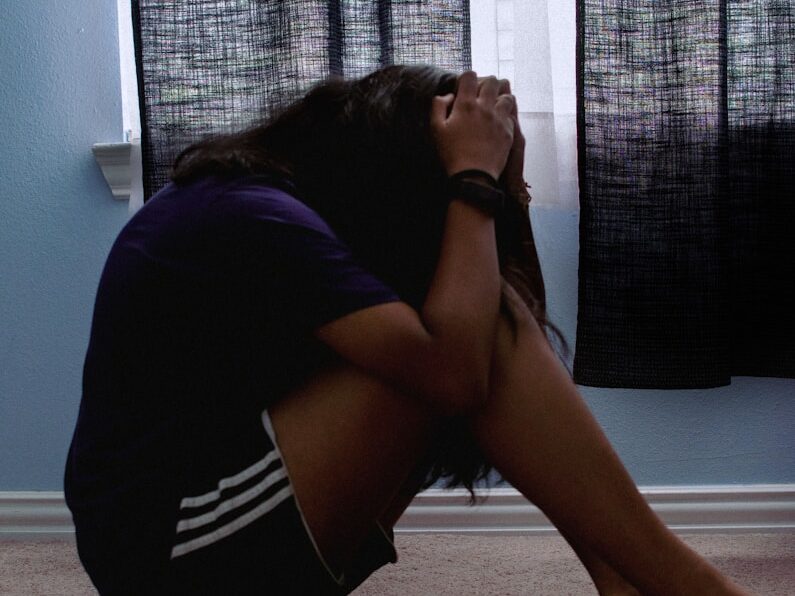
Friendships are supposed to be safe, supportive, and mutually uplifting. But sometimes, what starts as a healthy connection begins to shift in ways that leave you feeling uneasy. It’s not always obvious at first — a comment here, a pattern there — until you realize you’re walking away from time together feeling worse instead of better. These red flags can help you spot when a friendship is slowly becoming more harmful than helpful.
They Constantly Undermine Your Confidence

It might start with little comments — a joke about your outfit, a remark about your job, a side comment when you share an idea. They laugh it off as teasing, but you notice the sting lingers. Over time, these “jokes” erode your confidence, especially when made in front of others. Instead of feeling supported, you find yourself bracing for the next dig, unsure if they’re ever genuinely happy for you.
You Always Feel Drained After Seeing Them

Good friendships leave you feeling lighter, even if you’ve shared tough things. But if you consistently walk away tired, tense, or uneasy, it’s worth noting. Maybe it’s the constant venting without any balance, or the way they drain all your energy without giving any back. Eventually, you start to dread plans instead of looking forward to them, knowing the emotional cost will be high.
They Turn Everything Into a Competition

Sharing good news becomes tricky when every story gets matched or topped. You run a race; they’ve done a marathon. You talk about a work challenge, theirs is somehow more intense. Instead of celebrating with you, they redirect the focus. At first, you tell yourself it’s a coincidence, but eventually, you realize you’ve stopped opening up because you don’t want your moment overshadowed.
They Dismiss Your Feelings

When you tell them something that hurt or frustrated you, they wave it off — “You’re too sensitive” or “It’s not that deep.” That dismissal makes you doubt your own reactions, which can be even more damaging over time. A healthy friend doesn’t have to agree with you on everything, but they’ll at least acknowledge your feelings instead of making you feel foolish for having them.
You Notice More Gossip Than Support

If most of your conversations revolve around criticizing other people, it’s a warning sign. A friend who constantly tears others down may do the same when you’re not around. You might laugh along to avoid awkwardness, but you start to realize you’re on edge about what they might be saying about you. Trust feels shaky when negativity is the default tone.
They Make Everything About Themselves

You could be talking about a personal struggle, and within minutes, the conversation has shifted back to their latest challenge or achievement. They rarely ask how your situation is going, and when they do, it’s in passing. It’s not that they never care — it’s that their focus is always pulled inward, leaving your needs and experiences overlooked more often than not.
Boundaries Aren’t Respected

You’ve told them you can’t hang out late on weeknights or that certain topics are sensitive, but they push past those lines. Maybe they show up unannounced or press you into doing things you’ve said you’re not comfortable with. Over time, it becomes clear they value what they want over the limits you’ve set, and it leaves you feeling like your boundaries don’t matter.
They Keep Score

Favors become transactions instead of acts of care. They’ll remind you of the time they helped you move or covered a bill, using it later to guilt you into returning the favor. Friendships aren’t supposed to be a running tally, but with them, you feel like you’re in constant debt, always trying to even the score they’ve created.
Your Achievements Are Met With Jealousy

When something goes well for you, their reaction is muted or tinged with a backhanded remark — “Must be nice” or “Some people have all the luck.” They might change the subject quickly or bring up their own struggles in the same breath. Eventually, you find yourself downplaying your wins so you don’t have to deal with their discomfort.
You Feel Like You’re Walking on Eggshells

Over time, you’ve learned which topics to avoid and which opinions not to share to keep the peace. Maybe it’s their temper, maybe it’s passive-aggressive remarks, but either way, you’re not speaking freely anymore. In a healthy friendship, you shouldn’t have to constantly monitor your words to avoid conflict or emotional backlash.
They’re Only Around in Good Times

When things are going well, they’re eager to be part of your life. But when you’re facing a loss, a health scare or a rough patch, they fade into the background. Maybe they send a quick “Hope you’re okay” message, but there’s no real presence or follow-up. It becomes clear they’re there for the celebrations, not the challenges.
Conversations Leave You Second-Guessing Yourself

After talking with them, you often replay the conversation in your head, wondering if you said something wrong or missed a hidden meaning. It’s not one big argument — it’s a slow buildup of moments that leave you feeling unsure of yourself. Over time, this constant self-questioning chips away at your confidence in the friendship.
You’re the One Holding It Together

If you stopped texting, calling, or making plans, you suspect the friendship would simply fizzle out. You’re the one remembering birthdays, checking in after a bad week, and making sure you see each other. When all the effort is on your side, it stops feeling like mutual care and starts feeling like a one-sided obligation.
They Use Your Vulnerabilities Against You

Things you told them in confidence resurface during disagreements or are mentioned in ways that make you uncomfortable. They might frame it as “just being honest,” but it leaves you feeling exposed and wary. Once this trust is broken, it’s hard to share openly again without wondering if your words will be used as a weapon later.
Your Gut Says Something’s Off

Even without a single clear incident, you can sense the shift. Maybe it’s their tone, the way they look at you or how often you leave feeling unsettled. You keep hoping things will return to how they used to be but deep down, you know when a friendship has changed in ways that aren’t healthy anymore.

